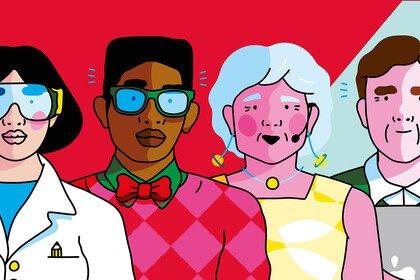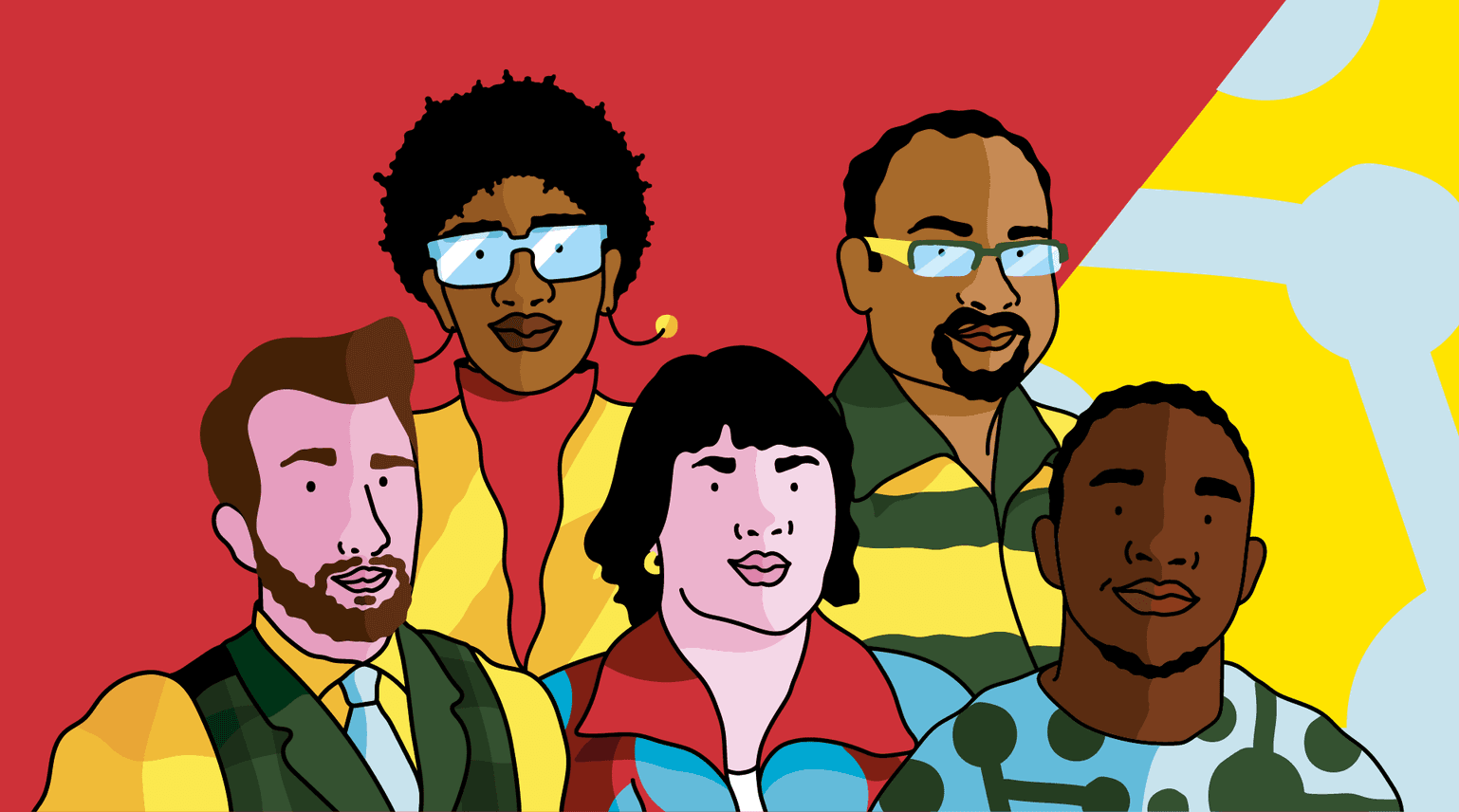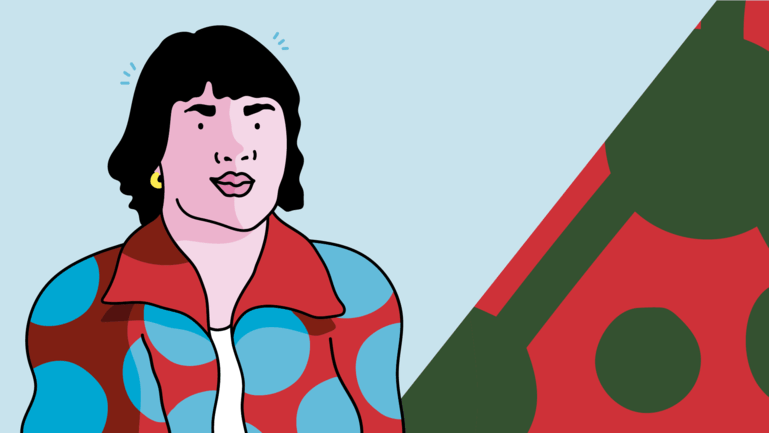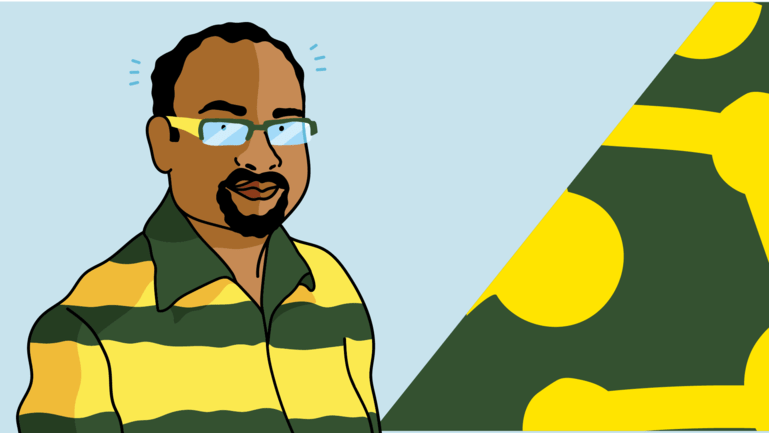
Research culture: where should change start?
Where does research culture originate and what tools do we have to change it? People from across the research community share their ideas for change.

The article contributors from left to right: Ben Britton, Karen Salt, Jane Thompson, Hetan Shah and De-Shaine Murray.
Change must be an everyday practice

Karen Salt, UK Research and Innovation
I haven’t always been in policy. For many years I worked directly for communities, often as part of societal change programmes, such as a phenomenal organisation that provided pregnant women in drug treatment with community-led prenatal, birth and postpartum support. In nearly all of these roles, the challenge wasn’t just the change that was needed, but where to start. This is a critical consideration that I have spoken about as a researcher and an advocate, and one that I continue to reflect on in my role at UK Research and Innovation (UKRI).
UKRI plays a critical role in research and development, but it is only one part of a system that includes community groups, other funding bodies, charities, cultural organisations, industry and higher education institutions. Together, this group fuels the engine of knowledge production that enables us to address many grand challenges: food scarcity, inequalities and the impacts of Covid-19 in the UK and the wider world, to name just a few.
Yet, too few people see a future for themselves in research, such as those from Black, Asian and minority ethnic backgrounds and those who identify as disabled. And too many people feel undervalued for their contributions to the sector.
We talk about changing the system, but where to start? Change must be an everyday practice. This includes simple things like supporting people, recognising their achievements and calling out negative behaviour. We must also invest just as much energy into how we do research and innovation as we do into what we fund. To reach a world where research and innovation are for everyone, by everyone, will mean thinking critically about the design of the work and, where appropriate, who is included as a part of it. Although we need to consider the whole system in order to transform culture, change starts with each of us.
Let's reimagine who can be researchers

De-Shaine Murray, Imperial College London
Research leaders recruit in their own image. These biases exist, have real consequences and must be addressed. In research settings, if nobody wants to recruit someone that looks like myself, the academically 'gifted' Black girl from Croydon, or the Black boy from Handsworth who can’t secure research experience, certain demographics will remain excluded. Who tells us we can be researchers?
We assume that the 'best' conduct our studies, and academic research is a meritocracy. In my eyes, this is a fallacy. I’ve seen the shoulder tapping, the unwritten rules and the lack of access. What you know is important, but it’s far outweighed by who you know and who knows you. My presence here seems to be an exception to the rule. Only 30 students from my demographic were awarded UK Research and Innovation Studentships between 2016/2017 and 2018/2019 (Broken Pipeline Report), despite 19,868 places being offered in total during that period. The Black community has had a huge impact on this country, so why is there such an underrepresentation in academia?
Multiple studies have shown that diverse working groups are more innovative, and this positively affects revenue and performance. Other industries have begun making changes, why not academia? Instead, in academic research I’ve seen the prioritisation of competition over collaboration, and individual accolades over the benefit for all. Instead of pooling together resources we are indifferent or sometimes inhibit each other’s progress to succeed.
This is why communities I have been a part of building exist. From the African Caribbean Research Collective and Black In Neuro, to the ICLBlackDocNet, we shine a spotlight on those who are often ignored, working together and brightening the path for those to come. By lifting each other up, invariably we will lift everybody up. There is work to be done, but for me, reimagining research begins with reimagining who can be researchers.
Employers must address job security in research

Jane Thompson, University and College Union
The culture of UK research, especially at UK universities, has been well documented by bodies including Wellcome and the University and College Union.
Many of those working in research do not have job security, something that has changed little over the years. Around 68% of research staff are currently on fixed-term contracts, a figure that has remained relatively static since new legislation was introduced in 2002.
Add an increasingly high-stakes funding model that combines the Research Excellence Framework with fierce competition for individual grants, and researchers are being subject to particularly high levels of performance management and workplace stress.
This, combined with the fact that opportunities for research staff to move into more secure lectureships are steadily decreasing, means a bad situation is becoming even worse.
We need to challenge outdated notions that insecure research roles are a stepping stone to secure academic career paths and ask why insecure contracts are so endemic in the first place. Funders blame employers and employers blame the funders. And it is the research staff themselves who suffer.
Even when 'open-ended' contracts are used, they nearly all still link the duration of employment to the duration of a research grant. We need to move away from that model and recognise research staff as an integral part of the university workforce, who are able, just like all other staff, to move between different projects and workstreams.
There are small pockets of good practice out there, but we need a critical mass of employers to address this long-standing issue and work with their staff unions to develop a better, more sustainable model of research. A model that provides staff with security and prevents the current environment that allows discrimination, bullying and harassment to go unchallenged.
We need a deeper understanding of how research cultures are created and changed

Hetan Shah, British Academy
Our people and how we enable them to work in supportive, constructive and healthy ways must be the starting point of any conversation about research culture.
As a national academy, we see our role as developing skilful, independent researchers who are empowered to be the academic leaders of the future. But how we do this needs to be sensitive to the nature of different disciplines.
How research is done within SHAPE (Social Sciences, Humanities and Arts for People and the Economy) poses some particular challenges. In many of these disciplines, advances in knowledge are made by individuals working alone, or with others in ways which do not involve being in a lab environment regularly. This brings a higher risk of isolation and loneliness, which has been heightened over the past few months as opportunities for networking at seminars and conferences have largely disappeared.
Elsewhere, our work on educational research has highlighted how those who come into the research pipeline from successful professional careers need different forms of financial and intellectual support. For instance, their higher education experience may have been in a different discipline as well as some time ago, so they may be less familiar with current methods and techniques.
Commitments by research organisations and funders to sector-wide concordats for researcher development and research integrity are valuable steps forward. They’ll help us work together to build a vibrant ecosystem which enables a diverse body of researchers to thrive. But as we look to progress even further, we need a deeper understanding of how cultures are created and changed, and here SHAPE has much to offer. Our researchers investigate questions of community and belonging, power distribution and personal autonomy, and the dynamics surrounding race, gender and marginalisation among many other issues. We should use their insights to identify what steps we can take to empower researchers to build environments in which all contributions are respected and valued.
Let's work together to break down barriers in research

Ben Britton, University of British Columbia
There are many reasons why we, as individuals, conduct research. I write this as an 'early- to mid-career' researcher. I’m currently a tenured Associate Professor at the University of British Columbia as well as a Visiting Reader at Imperial College London, just 10 years out of my doctorate. To some this may look like bragging, but looking back, my success was enabled through my privilege, working full-time, a fair bit of good luck, and perhaps some hard work and talent (though that of course remains debatable).
In hindsight, I am also struck by lost opportunities where the pressure to succeed caused me to miss out and make unnecessary mistakes during my training, career, and personal life. This pressure may seem self-governed, but it was created by the research culture in which I worked.
Survivorship bias – which causes us to focus on those who succeed in research and to disregard those who do not – governs much of our research culture. It’s something I’ve been reflecting on, especially as I train the 'next generation'. By looking only at the successful, there is a risk that our culture is creating and sustaining marginalisation of individuals and directly limiting the diversity of humans ‘behind the science’.
And it’s also taking a toll on people’s mental and physical health. The narrative of being 'excellent' all the time is impossible. Exceptional professional success is often rare in our lives. Most of us live with an average (but useful) contribution, and occasionally our contributions excel and are noticed.
We also need to recognise that our lives are a complex balancing act, where our research career is only one thread. The delicacy, and instability, of this has been clearly observed during the pandemic, and the cost has fallen disproportionately on individuals, especially those from marginalised groups. There is consistent data that shows that funding and participation in research are not fairly distributed to reflect the society we serve.
Changing this will involve difficult conversations and decisions that lead to action. In these conversations, we risk that many may point to their dissatisfaction, while equally disavowing themselves of individual agency to correct inequalities and build a more positive future.
As one of the survivors, the onus is on me and people like me to clean up after ourselves and make things better. Together, we must actively work to break down barriers and limit any damage that the status quo has inflicted. It’s not just those in power who can enact change, everyone can help to improve our culture.

